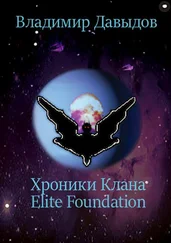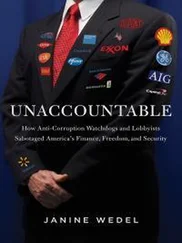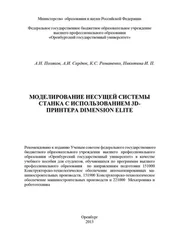Ranulph Fiennes - Killer Elite
Здесь есть возможность читать онлайн «Ranulph Fiennes - Killer Elite» весь текст электронной книги совершенно бесплатно (целиком полную версию без сокращений). В некоторых случаях можно слушать аудио, скачать через торрент в формате fb2 и присутствует краткое содержание. Жанр: Триллер, на английском языке. Описание произведения, (предисловие) а так же отзывы посетителей доступны на портале библиотеки ЛибКат.
- Название:Killer Elite
- Автор:
- Жанр:
- Год:неизвестен
- ISBN:нет данных
- Рейтинг книги:3 / 5. Голосов: 1
-
Избранное:Добавить в избранное
- Отзывы:
-
Ваша оценка:
- 60
- 1
- 2
- 3
- 4
- 5
Killer Elite: краткое содержание, описание и аннотация
Предлагаем к чтению аннотацию, описание, краткое содержание или предисловие (зависит от того, что написал сам автор книги «Killer Elite»). Если вы не нашли необходимую информацию о книге — напишите в комментариях, мы постараемся отыскать её.
Killer Elite — читать онлайн бесплатно полную книгу (весь текст) целиком
Ниже представлен текст книги, разбитый по страницам. Система сохранения места последней прочитанной страницы, позволяет с удобством читать онлайн бесплатно книгу «Killer Elite», без необходимости каждый раз заново искать на чём Вы остановились. Поставьте закладку, и сможете в любой момент перейти на страницу, на которой закончили чтение.
Интервал:
Закладка:
Hamoud ground the butt of his rifle into the goat dung to emphasize his words. “Amr bin Issa has disgraced us all. He is ayeb, one who neglects the obligations of blood relationship. An ayeb has no position and even his cousins may kill him. Six years ago his son Salim was killed here in this very village.” He shook his free fist in the direction of the cave mouth. “Three years later his firstborn child was killed at Mirbat and earlier this year another son was killed at the caves of Sherishitti. You will remember how at first he swore vengeance. For three years we believed him. Then the fire went out of him and, despite the urging of our respected rashiyd, he continued to neglect his duty. To me the matter reached the end of the camel when this man, our sheikh, was heard in Salalah to pronounce that the thaa’r was no longer a religious requirement.”
Hamoud paused for effect and was plainly successful. There was a murmur of shock and disapproval from the body of the audience. The elders looked at one another. White beards shook with dismay.
“This is no case for qithit, blood money, since those responsible for the murder of Amr’s sons will clearly not admit their guilt. It is for him to identify each guilty party, confront them and execute them. Only then can he redeem himself and avoid further disgrace. O Ashrafi, I request that you, as our qadhi, order Sheikh Amr bin Issa to state his intentions unequivocally here and now in front of Allah and our people.”
Hamoud returned to his family grouping. A hooded woman of the tribe called out: the morning meal was ready. The gathering moved out of the cave and down to the clearing.
Three cows, short, stringy beasts with stubby horns, munched a mixture of dried sardine, coconut pulp and hashish. One beast was selected by a powerfully built black man, a khadim, or ex-slave, of the late sultan. Two boys emerged from a nearby wattle hut and, at the slave’s bidding, squatted together in the dirt. With four men immobilizing the cow, the slave slit its jugular. Blood splattered the shaven heads, backs and shoulders of the boys. They were lucky, for cows were not often killed and this was a powerful cure for all sicknesses.
A woven bowl containing the cow’s warm entrails was passed around as an hors d’oeuvre. Then the lightly boiled intestines were cut up and mixed with rice. This was served on four great tin platters around which the Bait Jarboatis sat.
A youngster cradling a six-foot-long flintlock rifle, a useless relic, switched on a Sony ghetto-blaster that blared the Voice of Aden. But the qadhi waved in irritation and the noise ceased. Amr listened halfheartedly to the conversations going on around him. His thoughts were far away. Baaqi listened but overheard little, for the Qara language, Jebbali, is spoken in staccato bursts, and to miss a single word can be to miss a complete sentence. For instance, fdr means to shiver with fear, ikof to pick off scabs, and stol to brandish a dagger. Ged means to drift ashore after a shipwreck. All useful phrases.
The Ashrafi and the elders had separated from the rest. During and immediately after the meal they would come to their decision. Two armed men in the dark brown fatigues favored by many adoo entered the clearing. There were reserved greetings but a marked lack of the spontaneous warmth that normally marks the arrival of a visitor.
The two men ignored the coolness of their reception. Then, spotting Hamoud, they expressed friendly greetings. Here was an old friend. They sat beside him. The eating continued.
“We have been active between Zeak and Jibjat.” The man who spoke was obviously the leader of the two, a wiry jebali in his thirties with black, curly hair, high cheekbones and narrow, almost slit eyes-a caricature of the Devil. He ate with his AK47 across his thighs.
“The Army think we are finished in this region. They are wrong. Yesterday we destroyed a Civil Aid team on the main road only five hours from here. Where were the Army then? We can still move and do as we please.”
“Why do you attack the Civil Aid people?” The Ashrafi asked the question that was in everyone’s minds. “They are not the Army. Their only work is to help us by building wells and schools. They have good animal doctors for our cattle.”
There was no answer to this. The PFLO’s stated intention was to bring progress to the Qara. Now that Sultan Qaboos was, through Civil Aid, doing just that, the adoo were only alienating the population by such acts as their murder of the Pakistani Civil Aid workers.
“Do not be taken in by the hindee ”-Indian-“puppets of the government.” The adoo then began a peroration of Marxist invective that he had learned at the PFLO school in Hauf, South Yemen. He probably understood no more of what he preached than did his audience.
The Ashrafi and the elders were silent. They more than anyone had learned to detest the strident bluster of the PFLO bully-boys. The Ashrafi’s family had been tortured and killed by men like these just two years before. His only surviving daughter, badly hurt at the time, had since lost her mind and the power of speech.
The elders were caught between two stools. They wished to make an example of Amr in order to stop the rot that might otherwise set in. The open failure of a tribal sheikh to respect the age-old law of the blood feud, especially when three of his own sons were to be avenged, might lead to a general collapse of the system, and this, as conservatives who knew no other way, they greatly feared. Amr must obey the sharia or else be seen to be punished. On the other hand the elders knew that Hamoud and his large clan had prepared the ground with care. If Amr were to go, there could be little doubt that Hamoud would become sheikh, a prospect they feared, for they associated him with the worst of the PFLO bully-boys, the blackshirts of Dhofar, and their anti-Islamic atrocities. It was a matter of choosing the lesser of two evils.
Back in the cave the elders found they were unable to reach a unanimous decision and formally invited the Ashrafi to settle the matter on behalf of the tribe. The Ashrafi had decided to pronounce not for the good of the Jarboatis but in memory of his once garrulous, life-loving daughter. “The sharia,” he said, as the marble glare of his near-sightless eyes traversed his expectant audience, “divides human activities into five groups, the first of which, the fardh, are strictly enforced. Such is the law of justice for the killing of kin.”
The Ashrafi stared at Amr. “By flouting the thaa’r, Sheikh Amr bin Issa appears to believe that he can disregard the sharia. I say to you all, especially to your sheikh, that nobody is above the law. Others today have said that Amr bin Issa is ayeb, and has disgraced himself and his clan. I agree that this is so.”
The old man snorted within his throat and spat bile.
“As your selected qadhi I submit that Amr bin Issa be given six months in which to avenge any one of his dead sons. Failing this, that he and his family be exiled from the country that lies between the Hadhramaut, the Rhubh al Khali and the sea. This exile to be until such time as he avenges each and every one of his dead children. Thanks be to Allah, the gracious.”
The Ashrafi sat down. To Baaqi, no one’s fool, this judgment was a clear reprieve, or at least a second chance for Amr, and as such a better deal than he had dared hope for. He had seen the Ashrafi’s black looks at the Lenin Regiment men and their open comradeship with Hamoud. He thanked God for sending these thugs at such a timely moment. • • •
Baaqi’s relief was short-lived. Events overtook, or at least modified, the Ashrafi’s pronouncement when, five months later, Amr’s favorite son, Tama’an, a fighter with the Bin Dhahaib unit, was killed in the western war zone. Amr was sad at his latest bereavement but not bitter. He knew that the scandal of his inaction had spread beyond the hearths of the Bait Jarboat and he suspected correctly that Tama’an’s death would bring matters to a head.
Читать дальшеИнтервал:
Закладка:
Похожие книги на «Killer Elite»
Представляем Вашему вниманию похожие книги на «Killer Elite» списком для выбора. Мы отобрали схожую по названию и смыслу литературу в надежде предоставить читателям больше вариантов отыскать новые, интересные, ещё непрочитанные произведения.
Обсуждение, отзывы о книге «Killer Elite» и просто собственные мнения читателей. Оставьте ваши комментарии, напишите, что Вы думаете о произведении, его смысле или главных героях. Укажите что конкретно понравилось, а что нет, и почему Вы так считаете.












